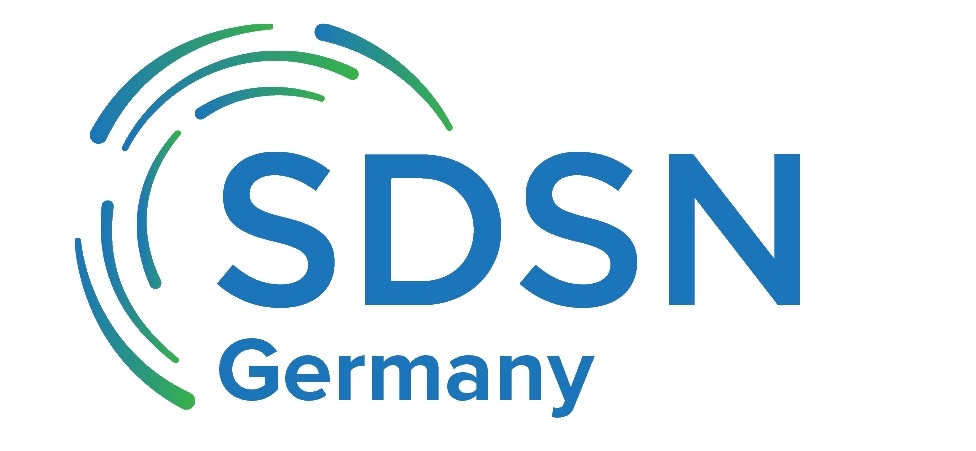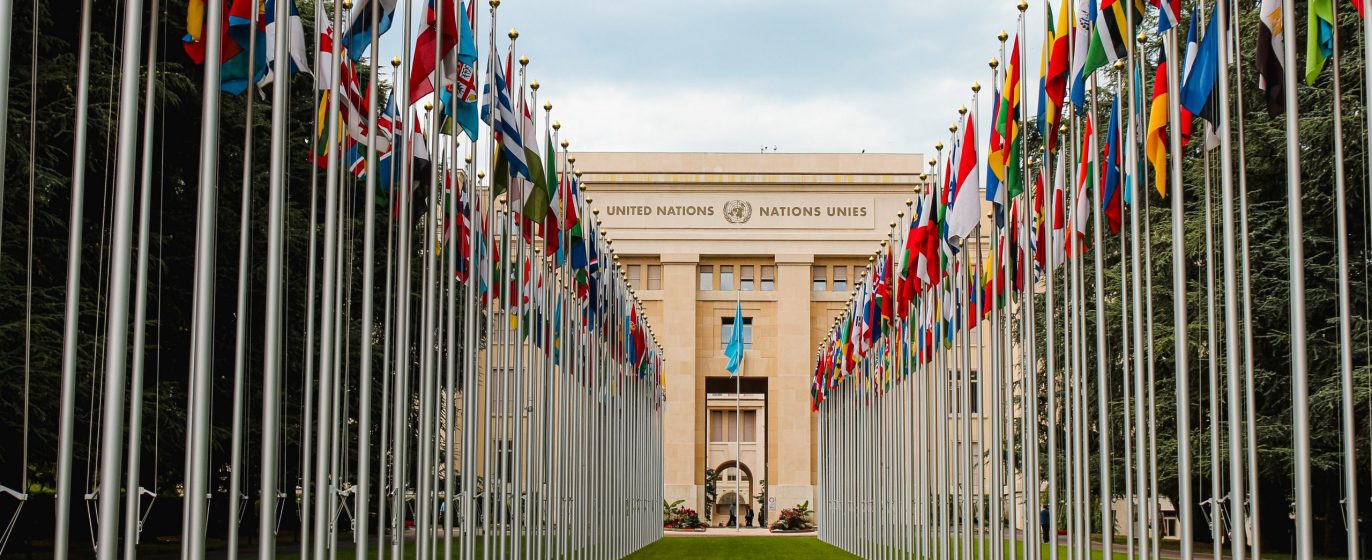As Angela Merkel’s 16 years at the helm of the German government come to a close, Germany’s international cooperation for sustainable development seems, at first sight, to be in good shape. During her tenure, German official development assistance (ODA) more than tripled, reaching $28 billion in 2020 and putting Germany second only to the United States ($34 billion) and well ahead of the United Kingdom ($19 billion) and the EU Institutions ($17 billion). Germany boasts an independent cabinet-level Ministry for Economic Cooperation and Development (BMZ) that steers 75 percent of the federal government’s ODA. The remainder sits primarily with the Foreign Office (15 percent) followed way behind by the Ministry for the Environment (2.5 percent) and some others. It might seem, then, that the outlook is sanguine for Germany’s development cooperation. But is it?
Sadly, the numbers don’t tell the full story. Germany may be among the most generous providers of ODA, but its international cooperation and broader foreign policy architecture are undercutting its efforts. The next government will need a clear vision and political capital to retool Germany’s international cooperation to truly promote sustainable development on a global scale.
Dark clouds gathering at the horizon
Germany’s impressive ODA figures are not matched by an equivalent political clout, either across government or at the European and international levels. The recent OECD/DAC Peer Review on Germany’s international cooperation criticised its lack of overall vision and a practice of non-interference among autonomous ministries instead of a whole-of-government approach. This translates into weak or even absent leadership in multilateral and multistakeholder partnerships. It seems as if the rise in financial resources is accompanied by a decline in political capital invested, while shiny initiatives primarily play to domestic galleries instead of rallying international alliances. This is all the more concerning as implementing the universal 2030 Agenda with its 17 Sustainable Development Goals (SDGs) requires an overhaul of an international cooperation architecture that still perceives cooperation as aid or charity limited to poorer countries.
Looking beyond election day, dark clouds are gathering at the horizon. The medium-term financial perspectives foresee a 25 percent cut of the BMZ’s budget after the additional funds for the COVID-19 crisis and some refugee aid run out. Warding off these cuts will require political heavy lifting as well as strong conceptual and institutional underpinning. However, Germany’s National Sustainable Development Strategy still lacks a coherent interdepartmental implementation program for the key lever of international responsibility and cooperation.
Furthermore, with the Chancellor leaving office and the political composition of the next government probably changing significantly—and the incumbent development minister not standing for reappointment after eight years in office—changes to the departmental set-up of the government, including BMZ’s remit, might be more likely than usual. The election campaign is awash with vows to modernise the entrenched German governance system, whose weaknesses have been laid bare by the pandemic, the climate crisis, and the devastating summer floods. There are proposals to set up new ministries for climate protection, digitalization, or immigration and integration, topics that all include a significant international dimension. Other proposals aim at bringing trade and aid closer together, or pooling development cooperation, international climate finance, and parts of humanitarian aid, with a view to finance a global transformation along the SDGs and the Paris Climate Goals.
In this context, two questions stand out: First, how prominently will the incoming government feature international responsibility and cooperation for sustainable development in a whole-of-government approach to external policies? Second, what will be the rationale behind the future departmental set-up of international cooperation?
Adapting the cooperation architecture to the 2030 Agenda
Let’s start with the second, seemingly easier question. With the adoption of the 2030 Agenda and its 17 SDGs, the development agenda turned universal, aiming at transformative change in poorer and richer countries alike, as well as balancing the economic, social, and environmental dimensions of sustainable development in an integrated and indivisible manner. However, to what extent does this change get translated into the conceptual and departmental set-up of Germany’s international cooperation?
Not so much, if you listen to the development policy spokespersons of the democratic political parties in the German Bundestag. Across the aisle(s), they prioritize poverty, hunger, and inequality as the main concerns for BMZ’s development cooperation with obviously little understanding of the broader SDG agenda (“People, Planet, Prosperity”) or the related idea of the global common good, without which all other efforts will be futile.
A more nuanced approach is taken by the BMZ’s 2030 reform strategy. While it highlights overcoming hunger and poverty as its primary aim when implementing the 2030 Agenda, the strategy also emphasizes new partnerships to protect global goods and defines five core areas, from peacebuilding to the environment, that relate to concerns across all SDGs. Yet, the selection of partner countries and allocation of budgetary funds do not reflect the necessity to act in these core areas from a global perspective, but rather the neediness of countries and their quality of governance.
Exceptions confirm the rule. Eight emerging economies are framed as global partners, but cooperation with them, for example on global public goods, will be carried out mainly through loans and leveraging market funds, an all-too narrow approach. Another 10 conflict-affected countries, mainly in Africa and the Middle East, are grouped as nexus and peace partners. The focus, however, lies with 42 bilateral partner countries, most of them (35) in Africa and the EU’s Southern and Eastern neighbourhood. It is more than debatable how you can follow through on a global agenda aimed at the SDGs by applying a poverty lens in the first place, and with only five partner countries in Asia and two in Latin America, let alone build the transformative partnerships with other high-income countries necessary to achieve the SDGs.
A strategic choice to be taken
Germany’s next government will face a strategic decision: either limit the BMZ mainly to poverty-focused aid for the poorest countries and expand other ministries’ international cooperation in the areas and regions beyond this remit, or reposition the BMZ towards a broader transformative cooperation agenda geared at the universal achievement of the SDGs. The first choice could imply even ceding competencies to other ministries. The latter would require new formulas for allocating budgetary and political means, revisiting decade-old business models of aid delivery, and introducing a new openness towards other policy concerns.
Cooperation and coherence across government cannot be organised as one-way streets. Over the years, BMZ’s traditional hesitation in these regards has certainly contributed to the creeping rise of other ministries’ budget lines for international cooperation. Although these newcomers in the cooperation business have experienced beginners’ mistakes, they have also developed innovative approaches when entering uncharted territory. This can be observed with the Foreign Office’s crisis interventions (like at the civil-military interface), or with the Ministry for the Environment’s climate partnerships. Although completely different settings, both cases feature stronger links between operational activities and political initiatives, which is not common practice in the aid business. Another innovative feature can be found with first elements of reciprocity discussed around the climate partnerships. Addressing structural changes at both ends of the partnership would help with escaping the traditional donor-recipient trap and tearing down the walls separating cooperation with low- and middle-income countries from the cooperation between high-income countries.
Overall, the stronger arguments are with repositioning and thoroughly innovating the BMZ as Germany’s global cooperation ministry for sustainable development. First, the integrated character of the 2030 Agenda, with its mantra of “leave no one behind,” is best served if fighting poverty and inequality (“people”), protecting the climate and biodiversity (“planet”), and promoting economic development (“prosperity”) are supported by a respectively integrated cooperation architecture. Second, the effectiveness and efficiency of Germany’s international cooperation would suffer further by adding more actors to its already-complex cooperation bureaucracy. Third, coordination of and between diplomacy, cooperation, and the military as the core instruments of external policies is made much easier if led by one ministry each. Compare, by analogy, the military, where few would like to go back to the times of separate ministries for ground forces, the navy, and the air force.
Whole-of-government vision for geopolitical self-assertion or survival in the Anthropocene?
Let’s now address the first and larger question, which requires an answer no matter how the next government sets up its departments: How will and how should the next German government shape a stronger whole-of-government approach to external policies?
Across the political spectrum, there are calls for a better-coordinated, integrated approach to Germany’s and the EU’s external relations. As a recent Munich Security Report put it, Germany’s international commitment and leadership still “falls short not only of the expectations of its most important partners but also of the requirements arising from the strategic environment.” If Germany is to evolve from a status-quo power into an “enabling power,” it should “define its strategic interests … and modernize its foreign policy apparatus, including its decision-making processes.” The recent failures around Afghanistan could well accelerate these calls.
But what should be the vanishing points of such a strategic vision, geopolitical self-assertion or survival in the Anthropocene? Depending on the perspective taken, different approaches are pursued. Some want to create a National Security Council, others a National Council for Peace, Sustainability and Human Rights, both placed under the guidance of the Chancellor. Interestingly, the actual three contenders for the job are keen on strengthening the role of the Chancellery in international politics, not least to catch up with the presidencies in Washington and Paris or Moscow and Beijing. The idea of a National Security Council (or an upgrade of the dormant Federal Security Council) has been put forward from within the traditional foreign and security policy establishment for decades but is regularly met with resistance by the Foreign Office, which fears ceding influence to the Chancellery, and by development folks who fear a securitization of aid.
However, with the adoption of the SDGs and the Paris Climate Goals a new discourse is emerging. Achieving these goals requires a realignment in all external policy areas, as these need to be used as effective levers for a global transformation towards sustainable development, from foreign affairs to trade, science and technology, and cooperation. Only recently, the Citizens‘ Council „Germany’s Role in the World“ emphasized the need for a German and European foreign policy aligned with the 2030 Agenda. A National Council for Peace, Sustainability and Human Rights could become an apt place to drive this forward. Still, does it make sense from a practical, operational perspective to deal with all issues at the same time in one body? In the narrower security arena, there is much that could be improved at the interface of diplomacy, military, and cooperation by a revived Federal Security Council. But aligning all foreign policies and international cooperation with the goals of securing a global future requires an additional Transformation Cabinet for International Sustainable Development. As both a Federal Security Council and a Transformation Cabinet would be committees of the Federal Cabinet with significant overlaps in membership, common visions and strategic approaches could emerge more easily and be discussed and adopted by the Federal Cabinet itself.
It’s time to leave the trenches and embrace the next generation
Will Germany’s next government muster the vision and political capital to reposition Germany’s international cooperation architecture? Can it revamp and realign its broader foreign policy apparatus to turn Germany into an “enabling power” for global sustainable development? The answer to these open questions will, to a large extent, depend on the vagaries of the next coalition negotiations and the commitment of incoming ministers in relevant departments. But civil society and academia should help with this by leaving the comfort zones of their trenches and get foreign policy and security wonks, development, trade, and climate folks to talk to each other—and with the next generation.




